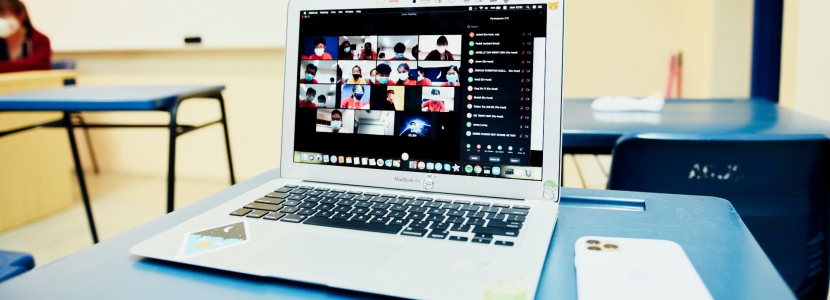
Mario has welcomed the measures the Government has put in place to ensure every student across Croydon receives a high-quality remoted education while schools are closed.
Throughout the pandemic, education has been a national priority, and thanks to the efforts of teachers and school staff across the country, schools remain the best, and safest place for our children to learn.
However, with our country in alert level 5, the highest it has ever been, the closure of schools is now necessary to keep the new variant of the virus under control. While there is no substitute for learning in a classroom, the Government has strengthened measures to ensure every child has access to a high-quality remote education.
As part of the Government’s commitment that no child is left behind, it is providing a million laptops and tablets for schools to allocate locally to students who need them most. To date, it has delivered over 560,000 devices to councils in England, with students in Croydon benefitting from the 1,033 devices provided to schools and colleges across Croydon, with a further 100,000 arriving this week nationally.
In tackling the barriers to remote learning for our most vulnerable students, over 54,000 4G routers to have been delivered to schools and colleges in England, ensuring every child has internet access. The Government is building on this work through its partnership with the UK’s leading mobile phone providers, including EE, Three, O2 and Vodafone, to deliver free internet access for these students until July 2021.
The Government has also strengthened remote education requirements for schools, which will be enforced by Ofsted, so parents can be reassured that their children will benefit from a set number of hours of high-quality remote learning a day.
Commenting, Mario said:
“The difficult decision to close schools and colleges was not taken lightly but is necessary if we are to keep the new variant of the virus at bay in Croydon and across the country.”
“While nothing can ever replace the benefits of learning in a classroom for our children and young people, the Government will continue to do everything it can to make sure they have access to a high-quality remote education so they can receive the world class education that they deserve”.
Commenting, Education Secretary, Gavin Williamson said:
“The last thing any Education Secretary wants to do is close schools and this is not a decision that the government ever wanted to take. But the closing of schools for the majority of pupils does not mean the end of their education.”
“Schools and colleges are much better prepared to deliver online learning – with the delivery of a million devices well underway, data support and high-quality video lessons available via the Oak National Academy.”
- We are providing a million laptops and tablets to our most disadvantaged children and young people, enabling them to access high quality remote education. As part of our commitment that no child is left behind, we have already delivered 560,000 devices, with 100,000 more being delivered this week, out of a total of one million that are being distributed to children who need them most; making our programme one of the largest of its kind in the world, helping our most disadvantaged students access high-remote education while they are out of school (DfE, Press Release, 20 December 2020, link; DfE, Oral statement to Parliament, 6 January 2021, link).
- Eliminating any barriers to remote learning for our poorest students by working with the country’s leading mobile operators to deliver free internet access. As part of our continued efforts to support pupils from disadvantaged families, we are partnering with the UK’s leading mobile phone operators including EE, Three, O2 and Vodafone to provide free data to those students without internet access, through our Get Help with Technology Programme, which will run until July 2021. This sits alongside the more than 54,000 4G routers we have delivered to schools and colleges to support families without internet access (DfE, Press Release, 20 December 2020, link; DfE, Devices and 4G Wireless Routers Data as of December, accessed 6 January 2021, link).
- We have invested more than £300 million to support remote education throughout the course of the pandemic. To date we have invested over £300 million to help schools and colleges as they transition to with remote education provision, including delivering 560,000 laptops with a further 100,000 delivered this week out of a total of 1 million devices available to be given to the children who need it most. £4.84 million has been provided to fund the Oak National Academy, an online resource, designed by teachers, which provides video lessons across a wide range of subjects for every year group from Reception to Year 10 pupils. We are also providing teachers with peer-to-peer help through our EdTech Development programme, which has supported over 6,000 schools and colleges through webinars, tutorials and bespoke one to one support for school staff (DfE, Press Release, 20 December 2020, link; DfE, Press Release, 1 October 2020, link).
- We are ensuring every student receives the highest quality remoted education possible by introducing legally binding requirements for schools. We have set out clear and legally binding requirements for schools to deliver high quality remote education, which is mandatory for all state-funded schools and will be overseen by Ofsted. Schools will also be expected to provide between three to five hours of teaching a day, depending on the child’s age, and Ofsted will inspect schools of any grade where it has serious concerns about the quality of its remote provision (DfE, Oral statement to Parliament, 6 January 2021, link).


